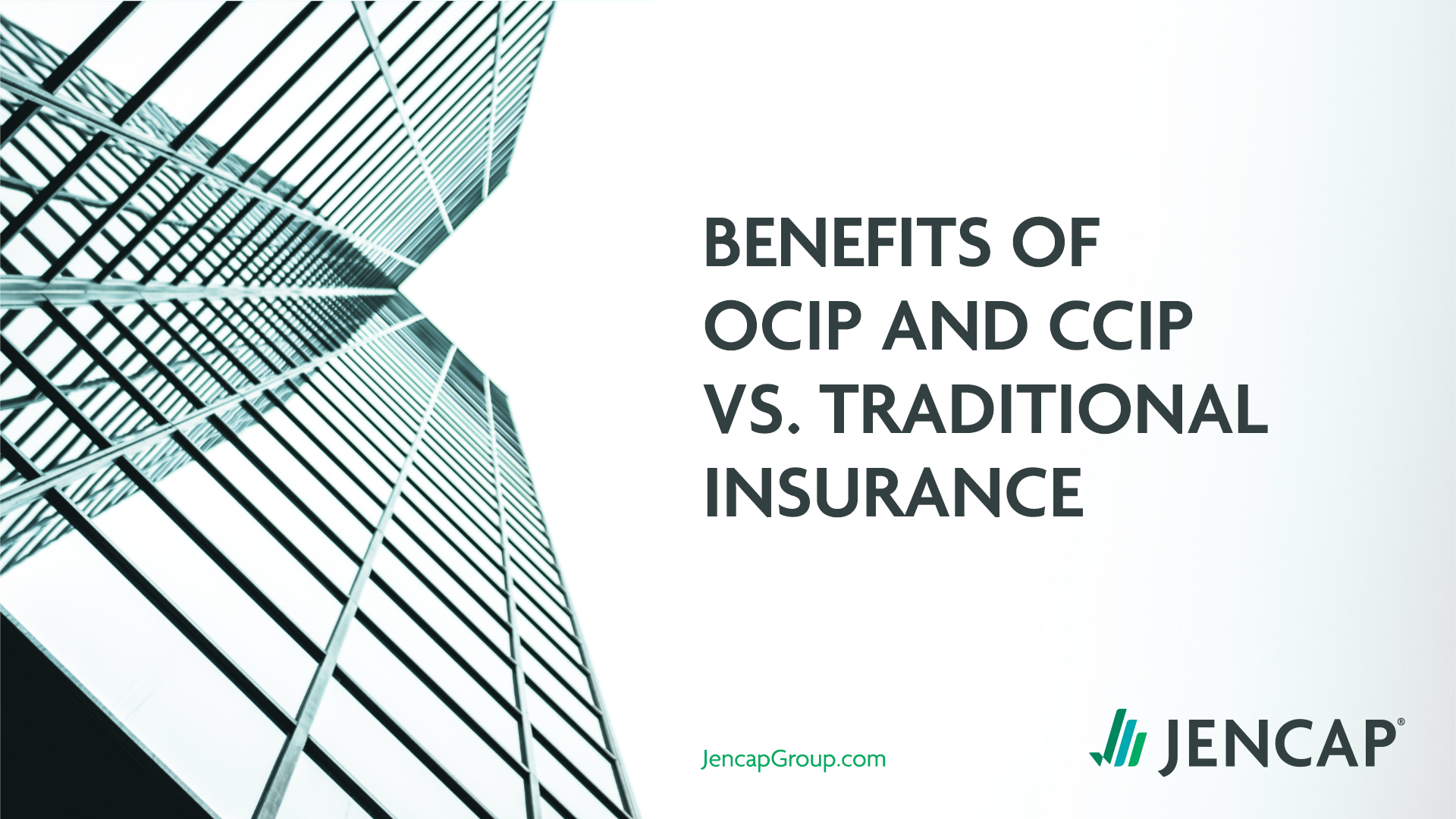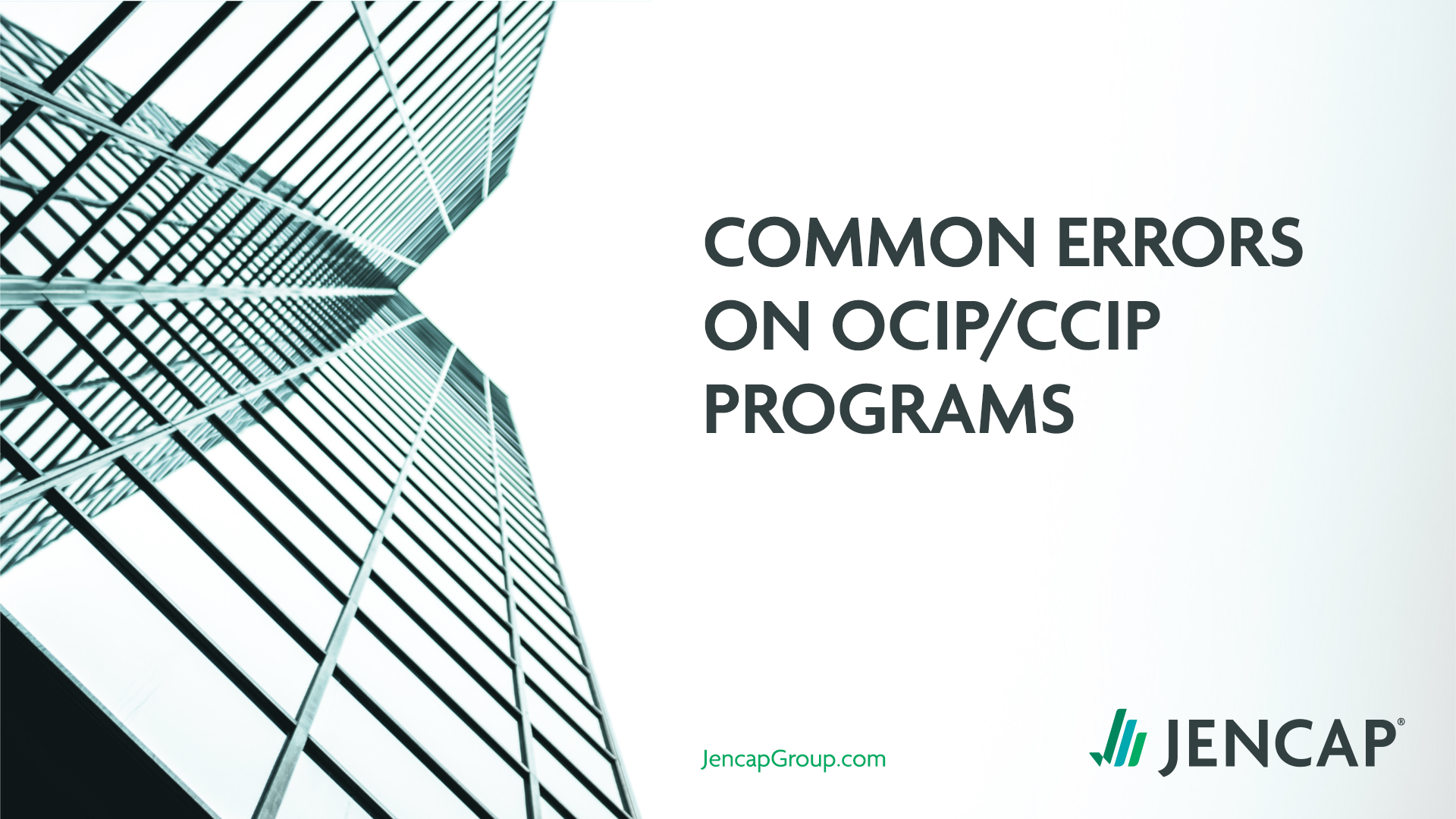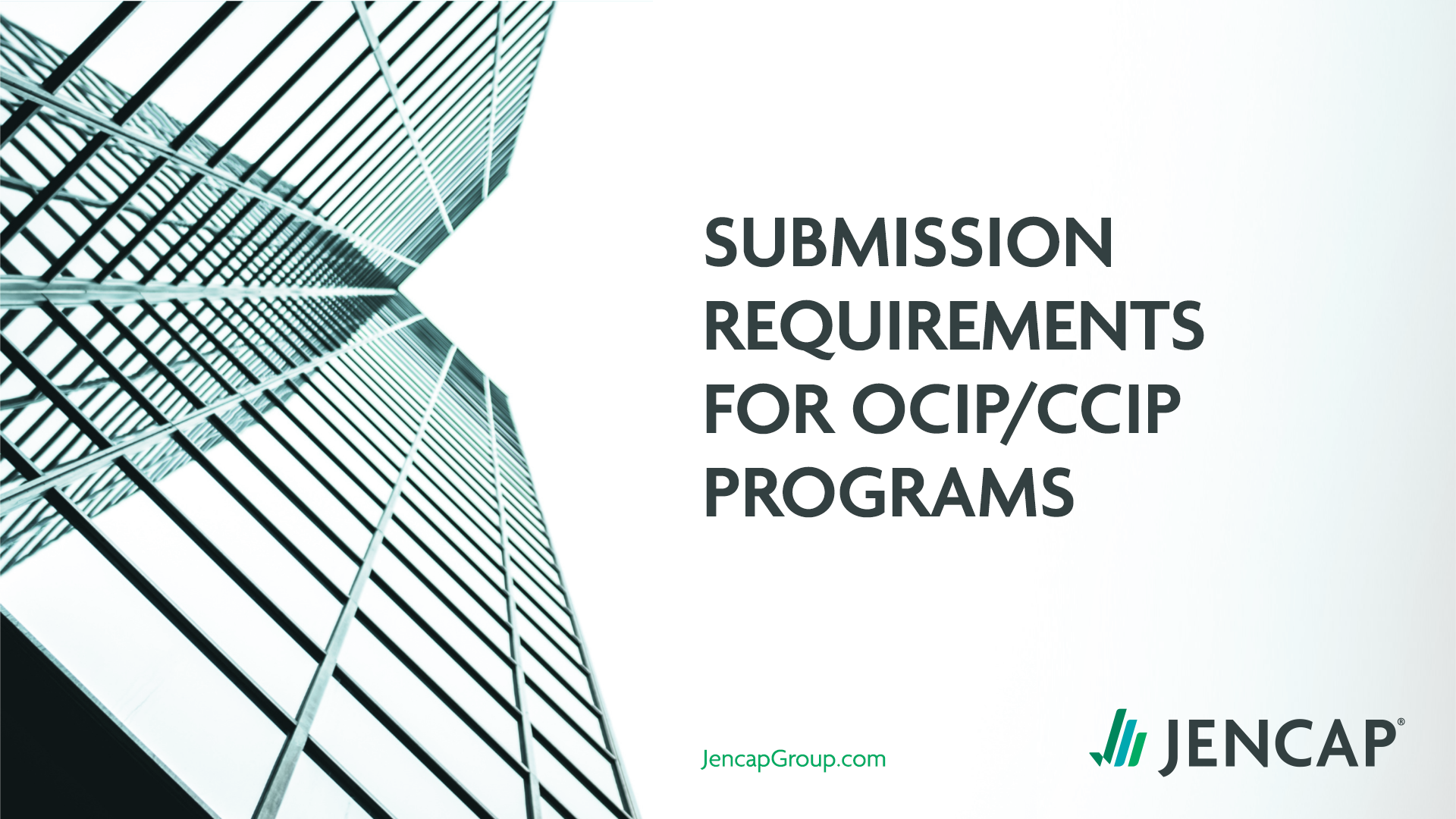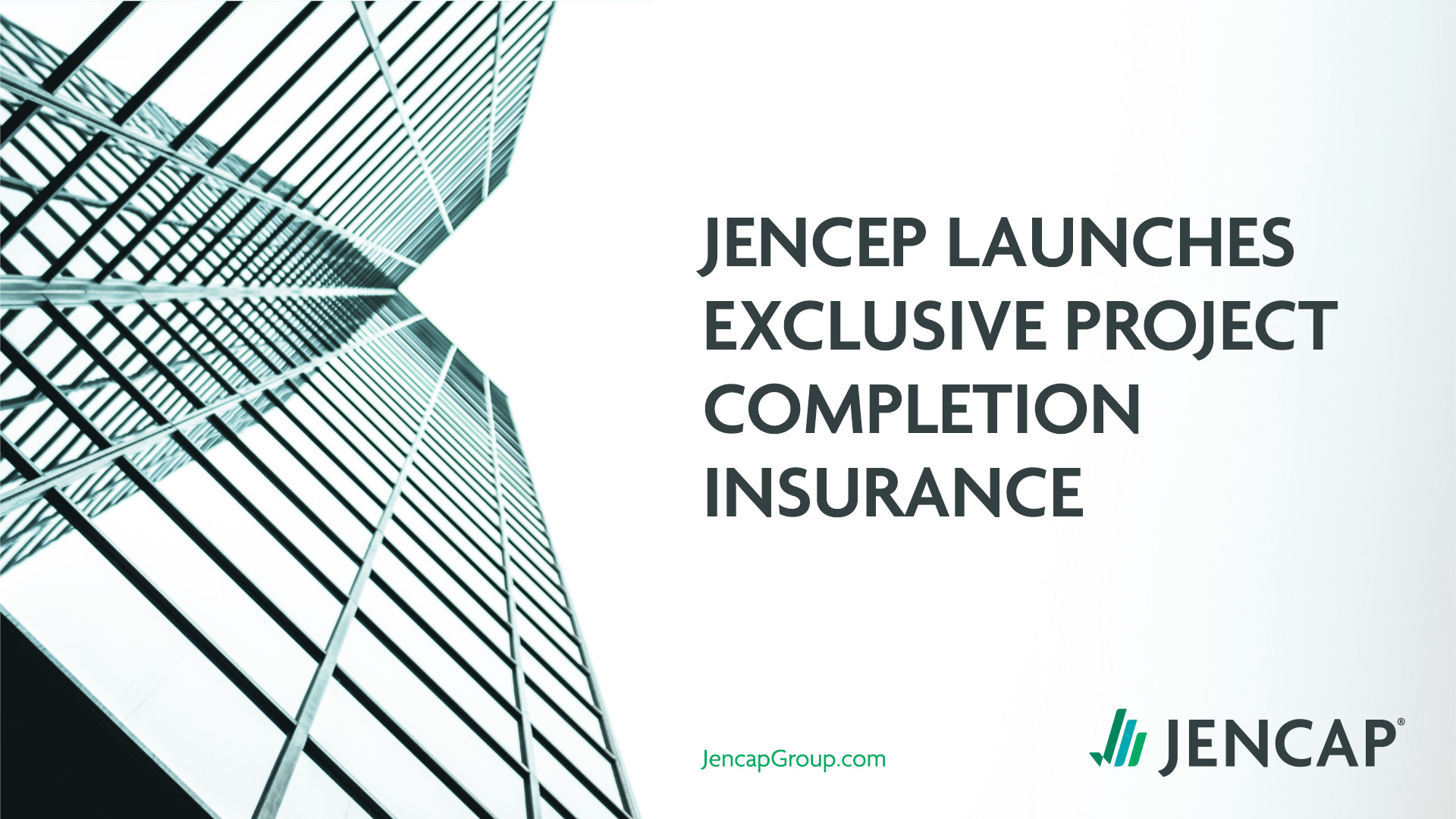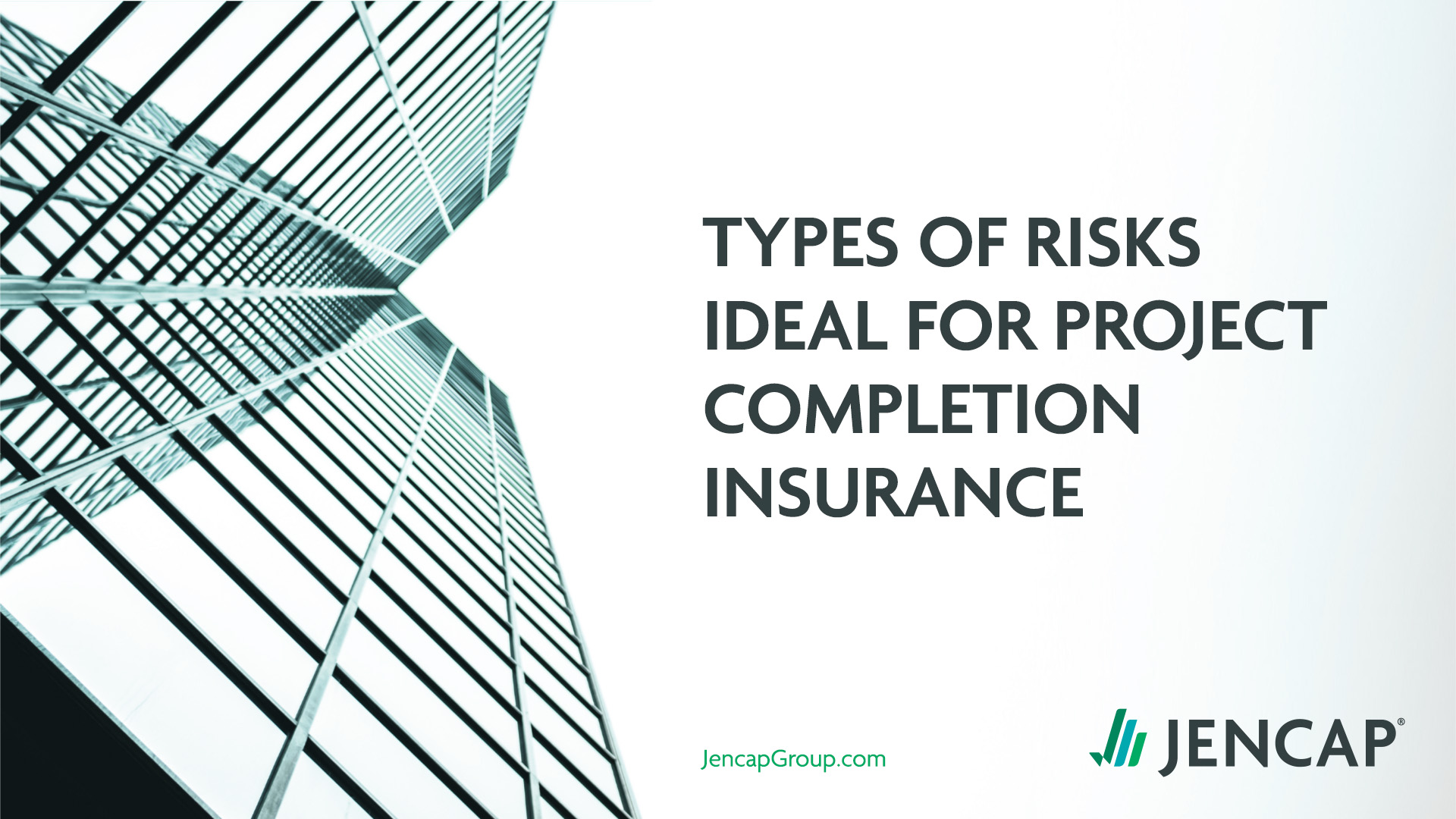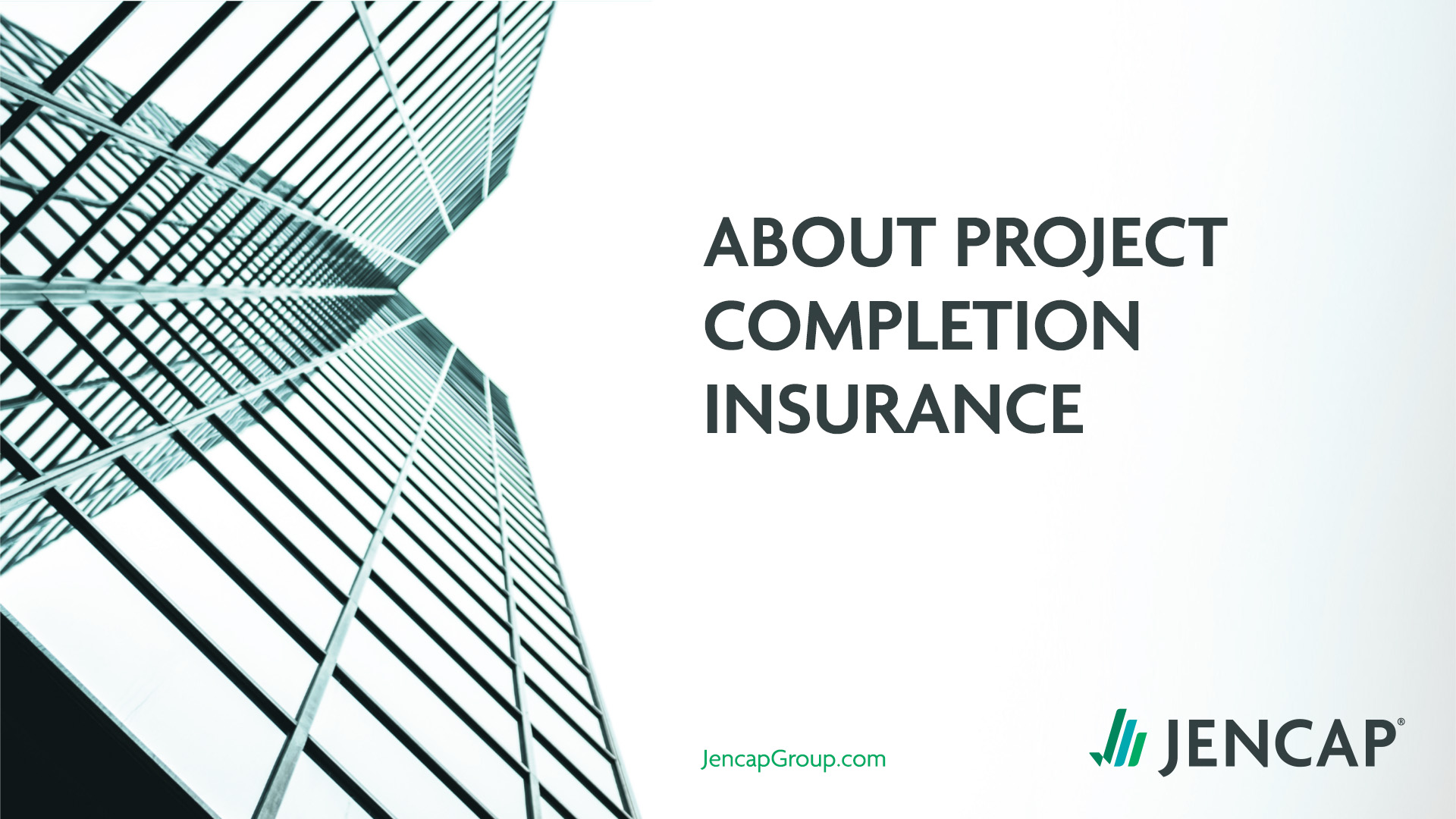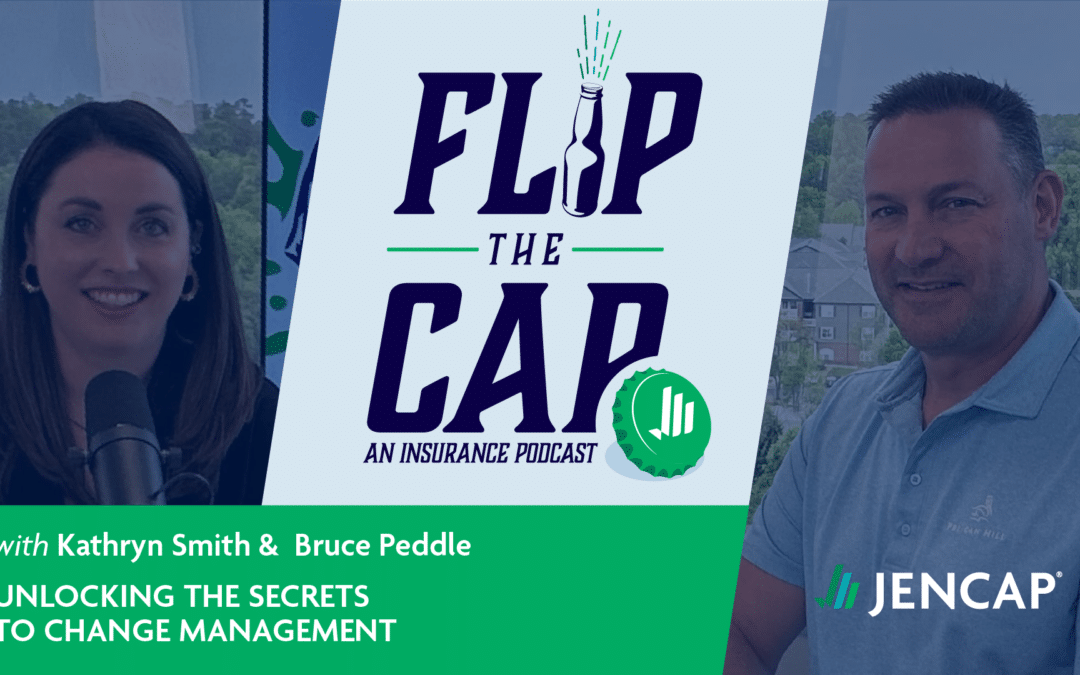Surety bonds are an essential risk-management tool for the construction lending industry. They offer a financial buffer in the event that a project is left incomplete or fails to meet its agreed upon terms and conditions. Although bonds are often a required part of construction projects, there are a number of reasons why securing a bond is not always feasible or desirable.
Despite their shortcomings, there hasn’t been a suitable alternative to surety bonds for the lending community — until now. Jencap, as part of an exclusive partnership with SureBuild, is pleased to announce an innovative new product called Project Completion Insurance (PCI). It provides the assurance a lender may require, without the hassles of a surety bond.
In this blog, we’ll compare and contrast some of the key differences between a surety bond and PCI.
Surety Bonds: A Brief Definition
Put simply, a surety bond is a financial instrument that protects a lender if their borrower defaults and cannot complete a project. Lenders often require project owners to obtain a surety bond before they’re awarded a loan.
The bond serves as a contract between three parties:
- The project owner who takes out a loan for the project and secures the bond.
- The bond company, or surety, who issues the bond and agrees to provide financial backing for the project owner.
- The lender.
How Surety Bonds Work
Let’s say a project owner wants to build a new shopping center, but he needs a loan to fund the project. As part of the loan approval process, the lender requires him to obtain a surety bond. The project owner secures the loan and begins construction on the shopping center.
After months of work, the project grinds to a halt, half-finished. The project owner is out of cash and has to default on the project loan. The lender works with the surety company to determine whether the terms of the bond will trigger a payout, so they can complete the project.
Meanwhile, the project sits stalled, losing valuable time and a great deal of money.
Challenges with Surety Bonds
Although surety bonds are an effective tool for protecting a project and loan, there are a number of reasons why a bond may not be a viable option.
- A project owner/borrower may not want to tie up their assets for collateral. In addition to the premium the project owner/borrower pays the surety company for a bond, they are also required to provide collateral. If they fail to meet the terms of the bond, the surety company can use the collateral to cover losses. This collateral ties up the project owner’s cash flow, because the funds set aside for collateral aren’t accessible or able to be used for other purposes. If the project owner needs those funds for a new project, they’ll need to wait until the current project is completed and the collateral is released.
- Once bonding limits are met, a project owner/borrower isn’t able to secure additional bonds. Surety companies put limits on the amount of bonding capacity they’ll provide a single project owner. These limits are determined by a project owner’s financial strength, experience, and reputation. Once a project owner hits their bonding limit, they may not be able to get additional bonds for new projects. They’ll either need to wait until current projects are completed and their bonds are released, or they’ll need to seek alternative sources of financing.
- Unfavorable market conditions can make surety companies reluctant to provide bonds. Surety companies are, understandably, risk averse. They may decline a bond request if the project owner operates in an industry or geographic region that is facing unfavorable market conditions. For example, if the construction industry is experiencing a downturn or there is a high level of competition in the market, the surety company may be reluctant to issue bonds.
- The cost of a surety bond can be prohibitive. Project owners/borrowers must pay a premium to the surety company to secure the bond. The premium is typically a percentage of the bond amount and varies based on the project owner’s risk profile. This cost can be a significant expense for project owners, ranging anywhere from 50-300 bps. Bonds can be particularly expensive for project owners who are new to the industry or deemed to have a high risk level.
- A project owner/borrower may not meet the terms required for a surety bond. When deciding to issue a project owner a bond, the surety company evaluates a project owner’s overall financial health and stability. If the project owner is in a weak financial position, the surety company may consider them a risky applicant and decline the bond request. In addition, surety companies prefer working with project owners who have a proven track record. This puts project owners who are new to the industry or new to a particular type of work at a disadvantage, because surety companies may consider them higher risk.
Project Completion Insurance: A Better Alternative to Surety Bonds
In partnership with SureBuild, Jencap is introducing a new product called Project Completion Insurance, which can take the place of surety bonds.
Similar to bonds, PCI serves as protection against situations where a project owner is unable to complete a project or fails to meet a project’s agreed-upon terms. However, the beneficiary of a PCI claim is the lender, not the project owner. If the borrower — the project owner and/or developer— defaults on their loan, the lender is able to step in and take back the project and complete it. The PCI policy funds up to 90% over the original hardcost budget amount.
This provides a financial safety net for the lender and gives the borrower the financial backing that’s typically required for large projects.
PCI is Project Protection — Without the Hassle or Added Costs
Available in 40 states, PCI sidesteps common challenges and problems with surety bonds.
- Unlike a bond, PCI doesn’t require collateral, freeing up operating cash for the borrower/project owner.
- PCI costs less than most surety bonds. Compared to the 50-300 bps that’s typical for bonds, PCI runs between 40-60 bps. These cost savings can free up capital for other purposes.
- If a borrower/project owner has already met their bond limit, PCI enables them to take on new projects without having to wait until existing projects are completed and those bonds are released.
- Because the beneficiary of a PCI claims payout is the lender, it provides protection to the lender who may be wary in the midst of unfavorable marketing conditions. It removes some of the risk from the lender, giving them more confidence to take on loans they may not otherwise. For example, they may be more willing to award a loan for something the borrower hasn’t previously tackled (e.g., larger projects, projects in new geographic areas, or innovative project types).
- PCI isn’t reliant on the same terms as surety bonds, so a project owner that is unable to be bonded, for any variety of reasons, may still be eligible for PCI.
If you’re a retail agent working with construction businesses, a construction industry professional looking for a surety bond alternative, or you have a surety practice, PCI is an innovative addition to traditional risk-management tools. Learn more about Project Completion Insurance and request a quote today.




















